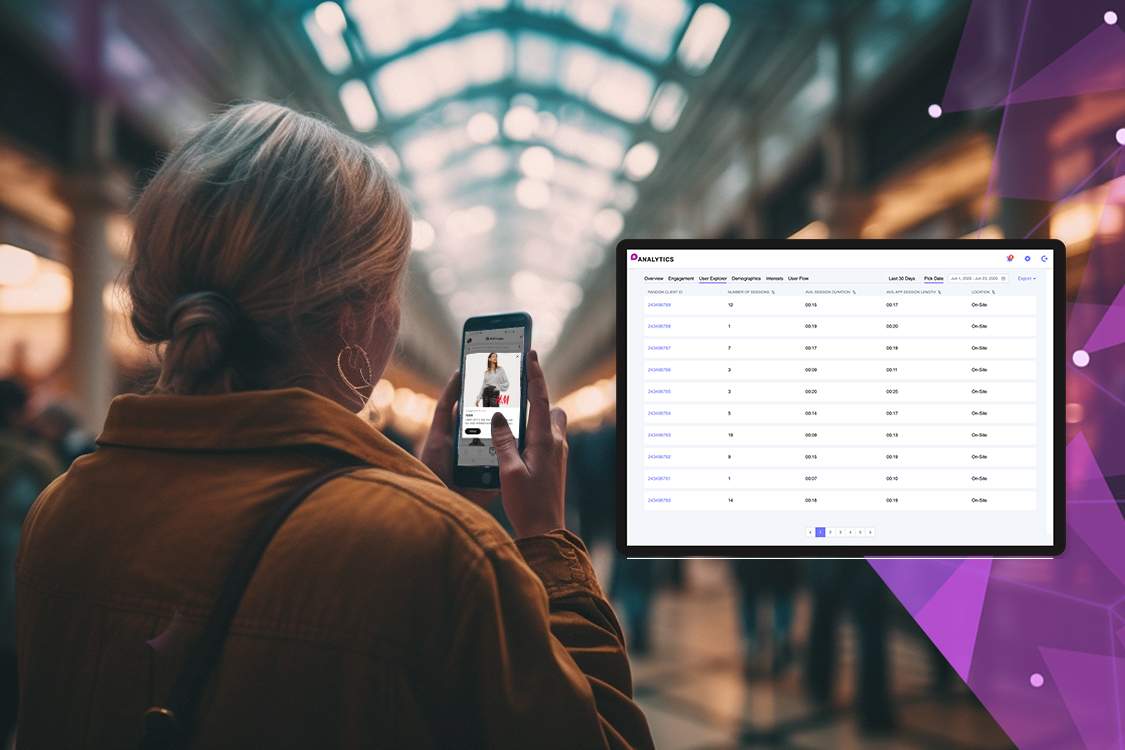IoT Solutions

In these times of social media, advanced technology and instant gratification, the topic of privacy is top of mind for many. It’s a rather tricky situation since most consumers thrive on getting personalized content when they want it and where they want it, but at the same time are also seeking a higher amount of data privacy. For technology providers, it’s a true balancing act between location tracking privacy and convenience to give consumers what they want.
The Data Debate
When it comes to targeted marketing using location-based data, there are a few important questions to consider regarding location tracking privacy and convenience. Is the data that’s collected really useful in your marketing strategy? Can you use it to personalize customers’ experiences and to get them to engage with your products or services? If you do, how do you do so responsibly while also being respectful of privacy?
With your target audience in mind, here are some ways to respect consumer privacy, while also giving them those personalized messages they’re craving:


Ask for permission
Prior to gathering or using data, be transparent with your audience. Google has a General Data Protection Regulation in place and offers several tools for those who wish to gather consent. Many businesses simply use these guidelines willingly since it builds trust with consumers. It shows you have their best interests in mind and most consumers appreciate that.
Build long-term customer trust
It’s hard to win over consumers since many have a built-in skepticism of new products. It’s even more difficult to get people to trust businesses with their personal information. There are worries about data breaches or hackers. Again, the word, “transparency” plays a major role. Be up front with consumers and you will build a solid foundation of trust.
Give value for data
Many consumers today are dealing with stressors previous generations would never comprehend. People are overloaded, overworked and exhausted. They want things to be as easy and as convenient as possible. Most consumers will clearly trade location data for convenience and something that intrigues and excites them. Let’s face it, location-based services can provide information, entertainment and security. And there is always the fact that when users download new apps they usually have to give their permission for the apps to access various parts of their phones’ hardware. It’s really up to end users to decide which permissions they agree to on an app-by-app basis. Some apps are able to autocomplete a user’s location.
Location-Based Advertising is Incredibly Effective
According to a McKinsey report, nearly three-quarters of consumers expect personalized communications today. The study indicates three out of four consumers said they tried a new store, product or shopping method in the previous year-and-a- half. Of those people, 80% said they planned to continue with their new shopping behaviour. Businesses can take advantage of consumers’ willingness to change by reaching them with targeted, personalized messages.
It’s intriguing to note that 71% of people who took part in the McKinsey survey said they expected personalized messages from businesses and 76% said they were frustrated when they weren’t receiving those messages.
Tech and the Generations
Firstly, when using location-based tracking to collect data about shopping habits, you should be clear on how different age groups respond to technology. Have a look at this brief rundown on those shopping habits, according to a Hubspot report, before we get into the topic of balancing location tracking privacy and convenience:
Gen Z (ages 18-24):
- Discovers products through social media, YouTube ads, and internet search.
- Top social media apps: Instagram, YouTube, TikTok.
- 33% bought products based on influencers, 28% via in-app shops.
- Values companies taking a stance on social issues.
- Streaming service ads beat cable TV.
Millennials (ages 25-35):
- Discovers products through social media, internet search, YouTube ads.
- Top social media apps: Facebook, YouTube, Instagram.
- 26% bought products based on influencers, 28% via in-app shops.
- Wants companies to take a stance on social issues.
Gen X (ages 35-54):
- Prefers search, TV ads, retail stores for product discovery.
- Social media discovery is frequent but not preferred.
- 18% bought products via in-app shops, 18% based on influencers.
- Supports companies taking a stance on social issues.
Boomers (ages 55+):
- Discovers products through TV ads, internet search, retail stores.
- Social media has limited influence.
- 17% discovered products on social media, 4% made social app purchases.
- Half believe companies should not take a stance on social issues.
“Transparency” is the Key Word
A 2021 study published in the International Journal of Retail & Distribution Management on How Location-Based Messages Influence Customers’ Store Visit Attitudes revealed that “privacy concern did not have a significant influence on location-based message value formation.” Furthermore, the study indicated that “benefits as well as sacrifices are relevant when customers assess the value of location-based messages and that such messages are mainly seen as valuable if they are, in order of relevance, locationally congruent, non-intrusive and personal.”
The Bottom Line
Geolocation data privacy has been bandied about as being a concern, however studies have shown it isn’t as much of an issue as it was thought to have been. Businesses just have to be transparent (there is that word, again) with consumers about the data they are collecting and using. By doing that, companies are giving consumers a choice about the kind of information they are fine with sharing. This helps to build customer confidence and ultimately, makes location-based advertising and marketing much more successful and effective.
If you would like to employ location-based marketing and advertising for your business or would like more information, give Mapsted an hour of your time and we will enlighten you with a no-cost demonstration. We invite you to reach out to us anytime. If you are interested in learning more about location-based technology you may also find this blog on 10 Location Marketing Strategies To Promote Your Grocery Store in 2024 informative, as well as this short video on Mapsted’s Location-Based Marketing Capabilities.
Frequently Asked Questions
Q1. What is location-based tracking?
Ans. Location-based tracking monitors and records the geographic position or location of an object, person, or asset in real-time or over a period of time. It uses various technologies, such as GPS (Global Positioning System), Wi-Fi, Bluetooth, RFID (Radio Frequency Identification), or cellular networks, to determine and track the location.
Q2. How accurate is location-based tracking technology in providing real-time location information?
Ans. The accuracy of location-based tracking technology in providing real-time location information can vary depending on several factors, including the technology used, environmental conditions, and the specific application or use case. Mapsted’s location-based technology is leading edge with a one to three-meter accuracy and advanced positioning algorithms.
Q3. What are some successful use cases or case studies of location-based tracking in specific industries or organizations?
Ans. There are numerous successful use cases and case studies of location-based tracking across various industries. For example, retailers use location-based tracking to optimize store layouts, improve customer experiences, and enhance marketing efforts. By analyzing customer movement patterns, retailers can identify high-traffic areas, optimize product placement, and personalize marketing messages based on customers’ locations within the store. Other areas where this technology is particularly useful include healthcare, travel, tourism, stadiums, museums and education.
Q4. Are there any legal or regulatory requirements that need to be considered when implementing location-based tracking, such as data protection or consent requirements?
Ans. It’s important to consult with professionals who specialize in data protection and privacy laws to ensure compliance with specific regulations applicable to your jurisdiction. Requirements can vary depending on the country or region where the location-based tracking system is implemented.
Q5. How does location-based tracking contribute to improved efficiency, cost savings, or customer experience?
Ans. Overall, location-based tracking empowers organizations to optimize their operations, make informed decisions, and deliver better services to customers. It improves efficiency, reduces costs, and enhances the overall customer experience by leveraging real-time location data and actionable insights.

